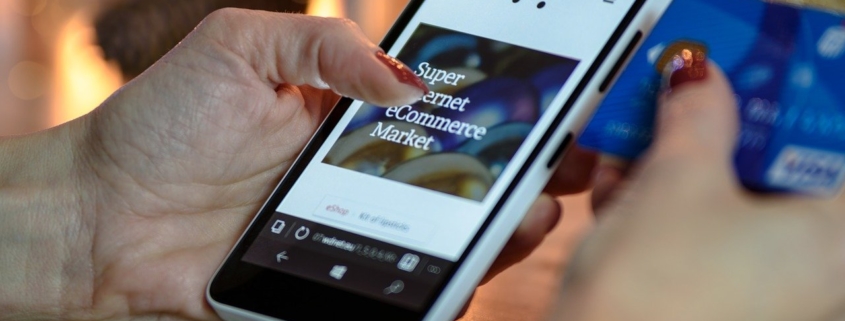Holiday Hacking is Very Risky for You and Your Family
It’s the holidays once again, and each year, people flock to the internet to do online shopping. Hackers know this, and they set themselves up to steal your data.
 Every year there is a big hack, and this year will likely be no different. Here are some tips to protect yourself shopping online now and in the future:
Every year there is a big hack, and this year will likely be no different. Here are some tips to protect yourself shopping online now and in the future:
Do Business With Trusted Sites
There are zillions of websites that look perfectly legitimate even using HTTPS in the URL. Many of these sites utilize perfect grammar, they incorporate an online “chat” feature where someone engages you immediately, and they even have a functional shopping cart. But they are in fact built specifically to scam you. You will generally stumble upon these sites in Google search when looking for a specific hard to find item.
To prevent being scammed, only pay by a credit card which you can be refunded upon learning of the scam, never wire money, or use Zelle or PayPal or Venmo etc. And search the name of the company and its URL to see if anybody else has been scammed. You might find references via the Better Business Bureau, “Scam detector” or other reputation based sites, or various forums revolving around that specific product category.
Only Use Strong Passwords
You should have a different password for every site you use. Keep in mind that this password might be the only thing stopping someone from accessing your personal information including your address, credit card information, and more. The best passwords should contain upper and lower case letters, symbols, and numbers. Also, avoid choosing anything obvious like the name of your pet, and never, ever use the same password for more than one account.
Update All Device Software
All of us are probably guilty of not updating our software when it needs to be updated. However, there is one type of software you never, ever want to skip updating: your anti-virus software. Anti-virus software helps to prevent hackers from getting access to your accounts, and make sure to update your operating system and other software on your devices.
Always Use Two-Step Verification When You Can
Many companies offer two-step verification for customers If this is available, choose it! This adds one more layer of security that a hacker has to get through, and it’s quite difficult to do because not only do they need access to your account, but also need access to your device. Most major retailers allow this, including Amazon and eBay.
Ignore Strange Looking Emails
Also, keep an eye out for strange looking emails. Many companies send holiday sales emails, for instance, and some hackers will take advantage of this. They will send an email that looks like it comes from a legitimate source, like Macy’s, but it’s actually a fake email that is coming from a weird email address and not Macys.com.
Watch Your Credit Card Statements
It is also important to watch your credit card statements, and if something looks strange, report it immediately. Consider getting notifications and alerts for any charges.
Keep Your Devices Locked
Another thing you can do is make sure all of your devices are locked. A device that is unlocked can easily expose your personal info to hackers, so keep those devices locked with a biometric option, like a finger print, or a strong password.
Don’t Use Unsafe Apps
If you are shopping from an app, make sure it’s a trusted one. You should only download apps from the Apple App Store, the Google Play Store, or Amazon App Store. Also, make sure that you are looking into what permissions you are giving these apps. For example, does an app need access to your contact list? No, it doesn’t.
When Shopping From Your Computer, Stay Safe
Even if you are shopping from a computer or mobile phone, you need to be connected to a safe and secure network. Don’t use public Wi-Fi unless you are also using a virtual private network, or a VPN.
Though it should be the responsibility of online retailers to ensure their sites are safe, but we all know that this just doesn’t always happen. So, make sure you are taking these extra steps to stop hacking.
Written by Robert Siciliano, CEO of Credit Parent, Head of Training & Security Awareness Expert at Protect Now, #1 Best Selling Amazon author, Media Personality & Architect of CSI Protection Certification.


























